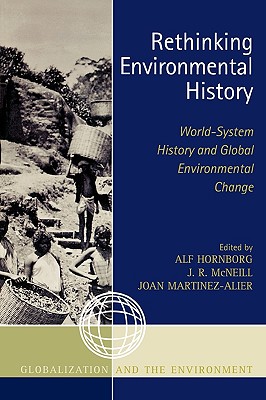| FindBook |
有 1 項符合
Rethinking Environmental History: World-System History and Global Environmental Change的圖書 |
 |
Rethinking Environmental History: World-System History and Global Environmental Change 作者:Hornborg,Alf(EDT)/McNeill,J. R.(EDT)/Martinez-Alier,Juan(EDT) 出版社:Altamira Pr 出版日期:2007-01-18 語言:英文 規格:平裝 / 15.2 x 22.9 x 2.5 cm / 普通級 |
| 圖書館借閱 |
| 國家圖書館 | 全國圖書書目資訊網 | 國立公共資訊圖書館 | 電子書服務平台 | MetaCat 跨館整合查詢 |
| 臺北市立圖書館 | 新北市立圖書館 | 基隆市公共圖書館 | 桃園市立圖書館 | 新竹縣公共圖書館 |
| 苗栗縣立圖書館 | 臺中市立圖書館 | 彰化縣公共圖書館 | 南投縣文化局 | 雲林縣公共圖書館 |
| 嘉義縣圖書館 | 臺南市立圖書館 | 高雄市立圖書館 | 屏東縣公共圖書館 | 宜蘭縣公共圖書館 |
| 花蓮縣文化局 | 臺東縣文化處 |
|
|
圖書介紹 - 資料來源:博客來 評分:
圖書名稱:Rethinking Environmental History: World-System History and Global Environmental Change
內容簡介
If one applies the world-system perspective pioneered by Immanuel Wallerstein to the study of environmental history, it becomes clear that the unequal power relations between rich core regions and the poor periphery should have their corollaries in the unequal distribution of environmental damage and burdens. Based on this central premise, this interdisciplinary collection presents 20 case studies and theoretical discussions exploring the political economy of environmental history from ancient Rome to modern Brazil. Examples of specific topics addressed in the papers presented by Hornborg (anthropology and human ecology, Lund U., Sweden), McNeill (environmental and international affairs, Georgetown U., US), and Martinez-Alier (ecological economics, Autonomous U. of Barcelona, Spain) include food, war, and crisis in the 17th century Swedish Empire, the role of deforestation in earth and world-system integration, political ecology and the East African ivory trade, the globalization of diet and the extractive economy, the physical inevitability of uneven development under capitalism, uneven ecological and consumption-based environmental impacts, historical trends of physical trade flows of pollution-intensive products, and environmental issues at the US-Mexico border and the unequal territorialization of value. Annotation 穢2007 Book News, Inc., Portland, OR (booknews.com)
|











